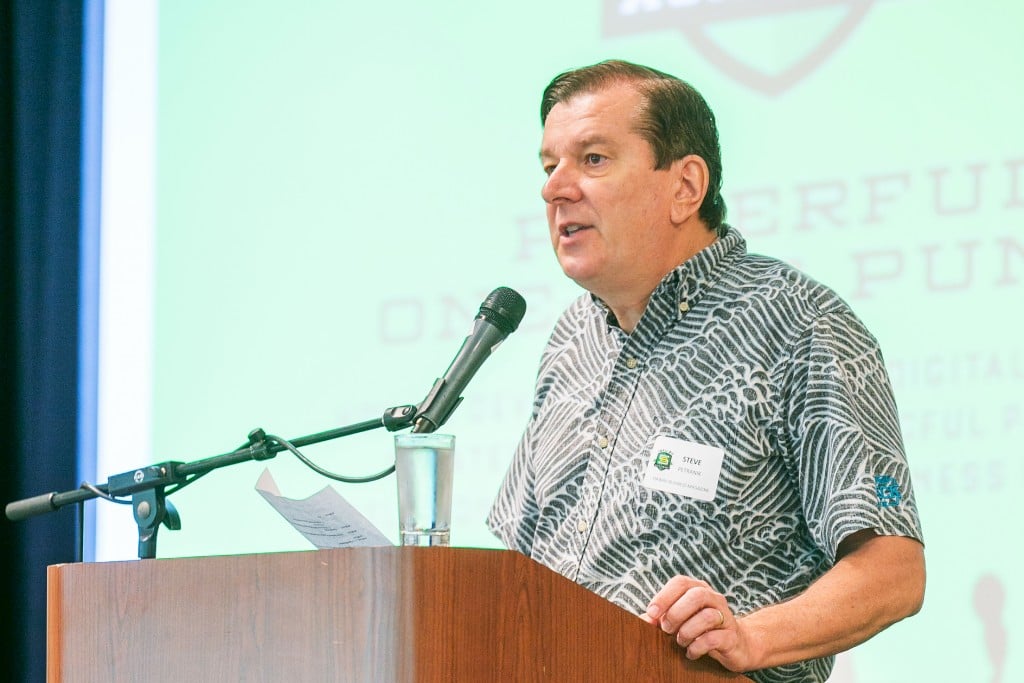Don’t Be So Certain It Can’t Happen Here

The most important book of our time offers warning signs
History does not repeat itself, but it rhymes and I hear an ominous poem these days.
Franklin Roosevelt committed one of the biggest sins of his 12-year presidency when he tried to pack the Supreme Court in 1937. “Sin” because Roosevelt’s move was not only a political blunder but a violation of an indispensable moral code: the unwritten yet clear rules of American democracy. He sought to undermine the system he had sworn to uphold. Thank goodness he did not succeed.
Roosevelt assumed the presidency in 1933 at the height of the Great Depression and revived both the economy and the confidence of the American people. Many believe he saved American democracy and capitalism at the same time that fascist dictators were overthrowing democracies in Germany, Spain and Italy.
He was the most popular and powerful person in the country but not omnipotent because of our government’s systems of checks and balances. One check was and is the Supreme Court, and after court decisions overturned parts of his New Deal, Roosevelt tried to undermine that limitation.
The 1936 electoral landslide gave Roosevelt’s Democratic Party overwhelming majorities in both houses, and he asked Congress for the power to nominate up to six more Supreme Court justices. He couldn’t fire the existing judges but he wanted more of his own men on the high bench.
This would not have violated the Constitution; Article III, Section 1 of the Constitution gives Congress the authority to set the number of justices. For instance, the country started with six and now has nine justices because of congressional decisions. But packing the court violates the norms of American democracy, the unwritten rules that are almost as important as the Constitution itself. Thankfully, Roosevelt’s proposal was defeated because enough Democrats respected the unwritten rules and defied their party’s popular leader.
Today, those unwritten rules are being violated more and more in America. And if history is any guide, we should be afraid – very afraid.
Two Harvard professors have written the most important book of our time, “How Democracies Die.” Significantly, Steven Levitsky and Daniel Ziblatt are not only experts on the history of America, but also on Latin America and Europe, places where thriving democracies have withered. Their carefully documented book points out that coups and violent revolutions are now rare. Much more common is the gradual subversion of democracy.
“This is not a book for Republicans or Democrats but more for … people whose first loyalty is to our republic and to our democracy.”
What usually goes first are not laws or the constitution, but the unofficial rules that allow a true democracy to flourish. These rules are undermined bit by bit, sometimes in barely perceptible steps. When the takeover is complete, the trappings of democracy often remain, such as a constitution and elections, a legislature, judiciary and news media, but everything is actually under the dictator’s thumb. Vladimir Putin’s Russia is an example. Venezuela, once a jewel of Latin American democracy, is another. Poland and Hungary overthrew Communist oligarchies less than three decades ago but are now democracies seemingly heading down the same authoritarian path.
Let’s get back to the United States: If you read Levitsky and Ziblatt’s book, you will be chilled at the parallels and rhymes between America today and the early stages when other nations began to lose their democracies.
The authors provide these four warning signs. “We should be worried when a politician, one, rejects in words or actions the democratic rules of the game; two, denies the legitimacy of opponents; three, tolerates or encourages violence; or four, indicates a willingness to curtail the civil liberties of opponents, including the media. A politician who violates even one of these criteria is cause for concern.” They cite far too many examples of politicians who started with one or two seemingly innocuous steps and won some support without suffering enough push back, then kept escalating their games.
Those who break these rules tend to be populists who run as outsiders, anti-establishment politicians who claim to represent “the people,” the authors say. They appeal to voters who feel established politicians are not solving the nation’s problems. When these outsider populists win elections, “they tend to assault democratic institutions” and insist the rules must change.
Many tyrants they discuss are unknown to you but let me name three you do know: Adolf Hitler of Germany, Benito Mussolini of Italy and Hugo Chavez of Venezuela. Each began their rise to power as outsiders with only a limited group of followers, but all were invited into the political establishment by leaders who thought they could control them. Of course, those invitations backfired.
The authors then cast their eye across America looking for recent violations of our democratic norms. I’m sure you will know some they mention; others probably happened under your radar.
If you think this book is a partisan effort, consider that the authors castigate well-known Democratic demagogues like Huey Long and George Wallace, who were both threats to American democratic norms but who fortunately got no further than state governor. No, this is not a book for Republicans or Democrats but more for republicans and democrats –people whose first loyalty is to our republic and to our democracy no matter what party they belong to.







